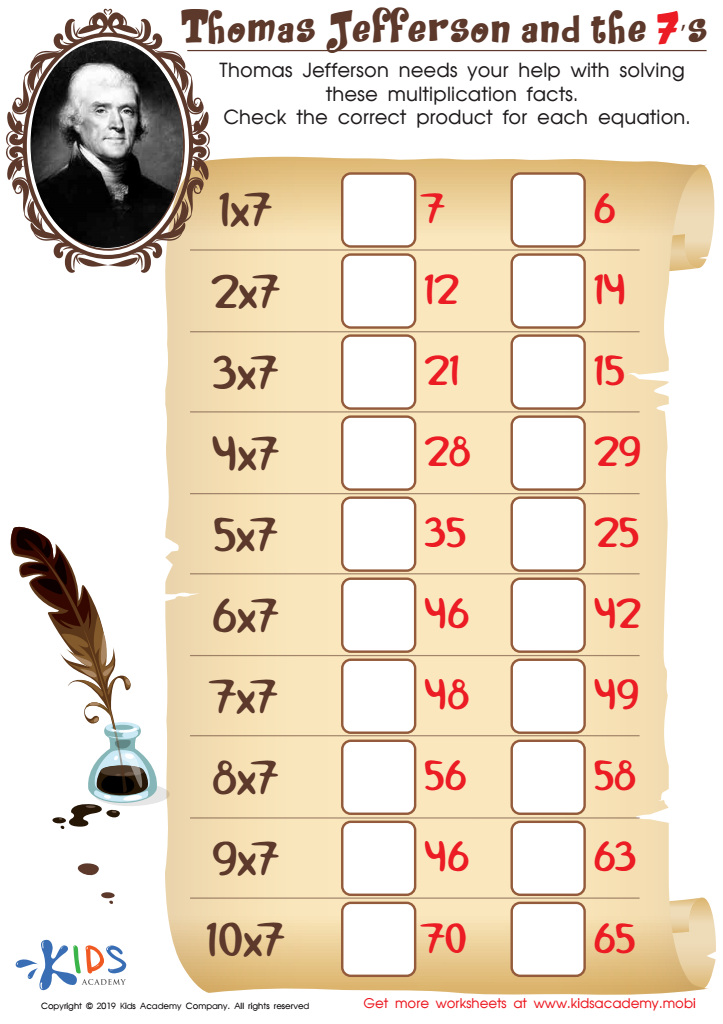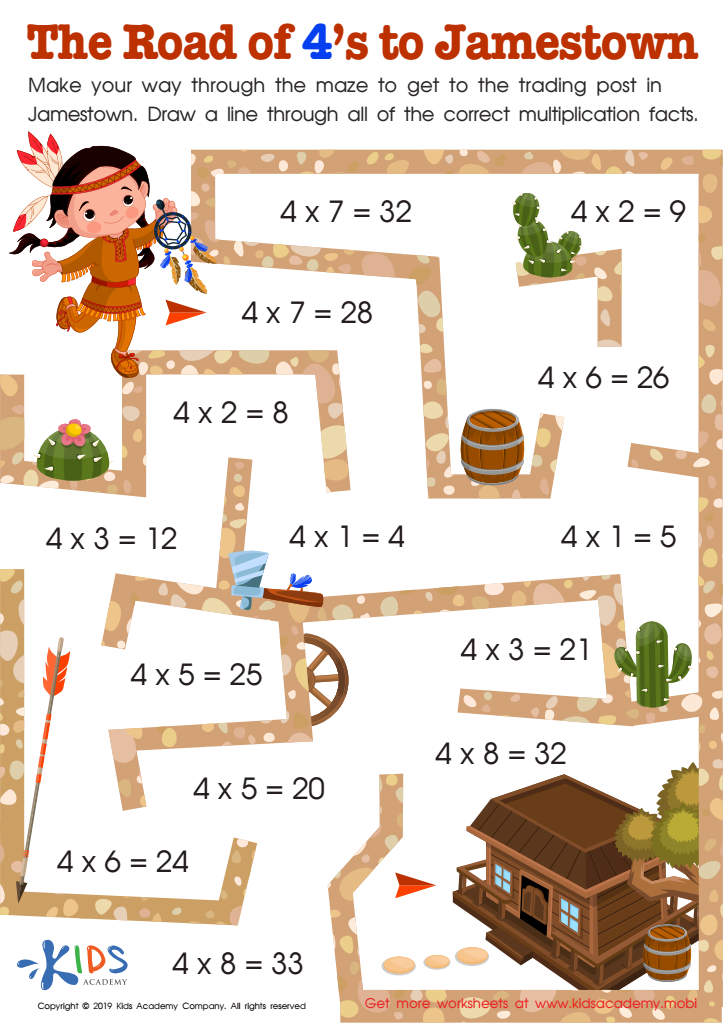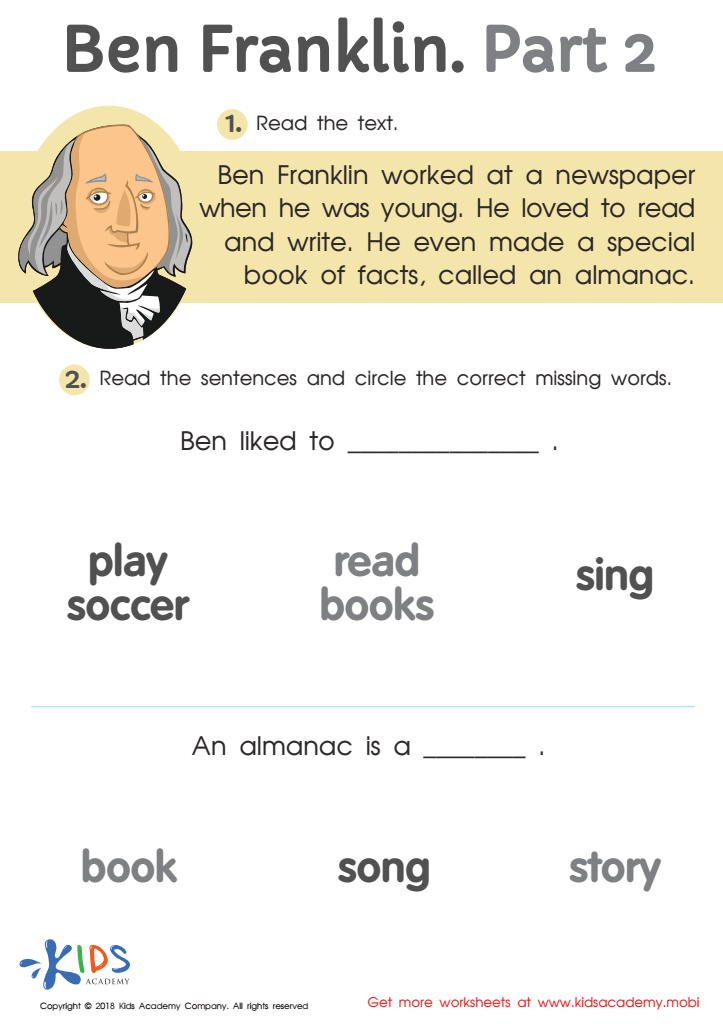Reading Skills History Worksheets for Ages 7-9
3 filtered results
-
From - To
Explore our engaging Reading Skills History Worksheets designed for ages 7-9! These worksheets support young learners in developing essential reading comprehension and analytical skills through the lens of history. Featuring captivating stories, thought-provoking questions, and interactive activities, children will embark on a journey through time as they enhance their reading abilities. Our resources encourage critical thinking and foster a deeper understanding of historical events and figures. Teachers and parents can easily access and print these worksheets, making learning both fun and accessible at home or in the classroom. Enrich your child's educational experience with our carefully crafted history worksheets today!


Thomas Jefferson and the 7’s Worksheet


The Road of 4’s to Jamestown Worksheet


Ben Franklin Part 2 Worksheet
Parents and teachers should care about reading skills history for ages 7-9 because this formative period serves as a critical foundation for a child's future academic success and overall literacy development. During these years, children typically transition from learning to read to reading to learn, making it essential to foster confidence and competence in reading. Understanding historical shifts in reading instruction—such as phonics versus whole language approaches—can provide insights into what methods are most effective.
Moreover, this age group is particularly sensitive to developing positive reading habits, and a strong reading history ensures children are exposed to a diverse range of literature that caters to different interests and cultures. This exposure enhances vocabulary, comprehension, and critical thinking skills, which are vital for effective communication and problem-solving.
Furthermore, by recognizing the evolving nature of reading instruction, educators and caregivers can better advocate for practices that motivate and engage children. Communities that prioritize reading also see long-term benefits, with better-prepared students emerging into society. Engaging in discussions about reading skills history encourages collaborative efforts between parents and teachers, uniting them in support of literacy as a shared goal. Ultimately, investing in reading at this early stage lays the groundwork for lifelong learning.
 Assign to My Students
Assign to My Students





















